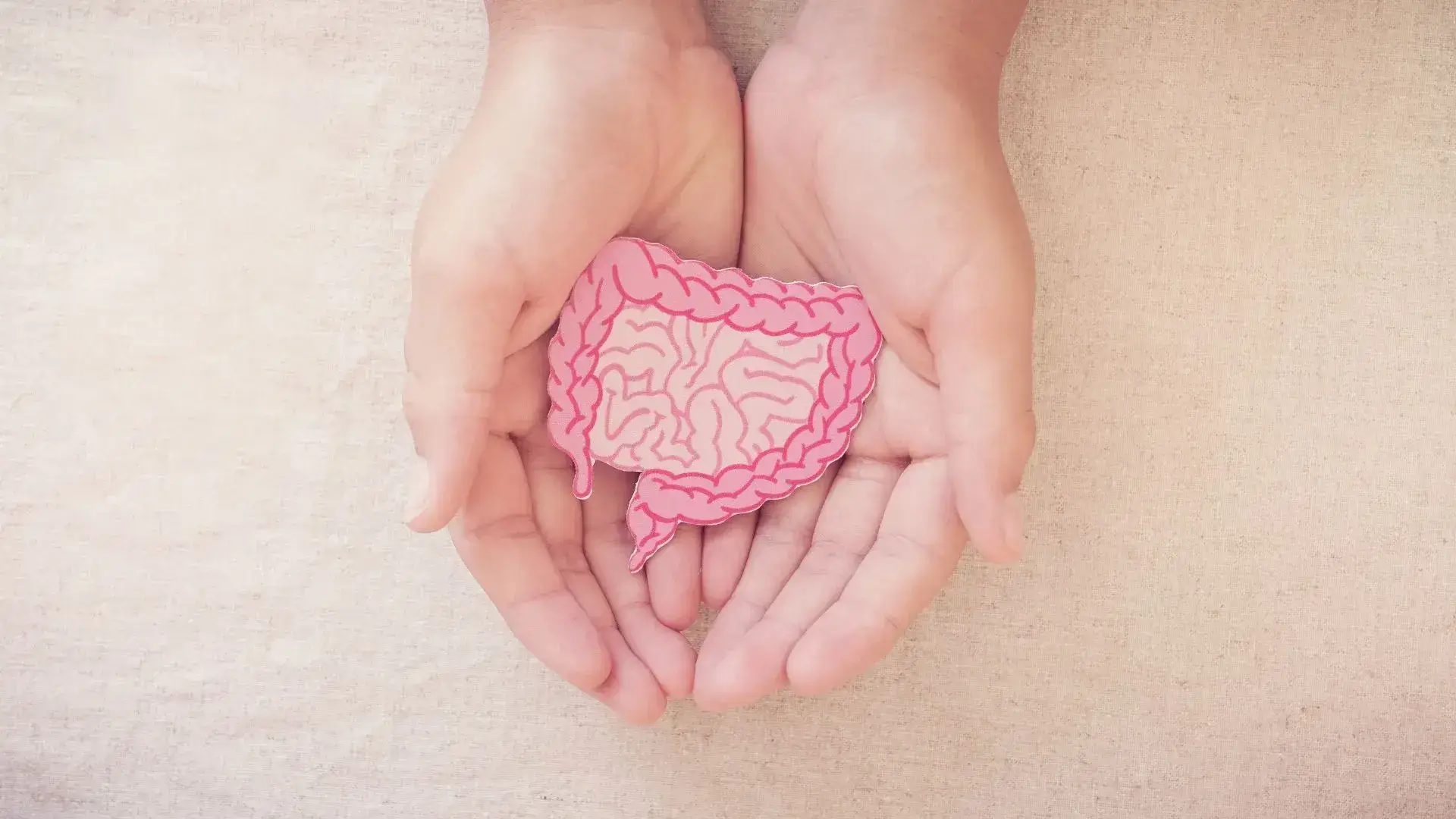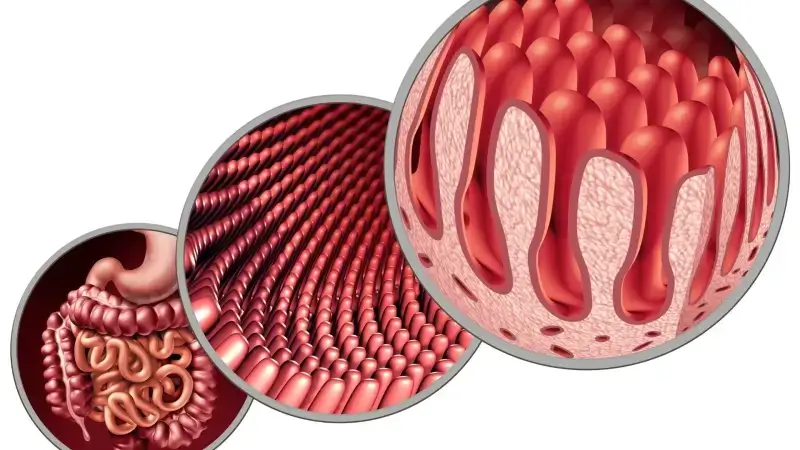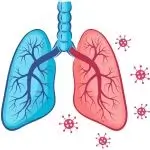Naturopathy Treatment for Leaky Gut Syndrome
- Mississauga, ON
- »
- Naturopathic Treatment
- »
- Leaky Gut Syndrome
- Women’s Health and Wellness
- Men’s Health and Wellness
- Mental Health Treatment
- Integumentary System, Skin Diseases
- Endocrine Conditions
- Cardiovascular Conditions Treatment
- Autoimmune Disorders, Immune System Conditions
- Respiratory System Conditions
- Rheumatic, Musculoskeletal Diseases
- Gastrointestinal Conditions
- Neurological Conditions, Pain Management

Best Naturopathy Doctors for Healthy Gut Program Clinic
Are you looking for a way to improve your overall health and wellness? If so, joining the Healthy Gut Program is the perfect way to get started, developed by Naturopathy Doctor at “Etobicoke Naturopath Osteopath Clinic“, this comprehensive program focuses on educating and helping people achieve a healthy gut environment. Through simple but effective lifestyle changes, strategies, and naturopathy treatments, the Healthy Gut Program helps to restore your gut microbiome balance for improved health and well-being. Leaky Gut Syndrome may heal along with the Candida overgrowth.

Understanding Leaky Gut Syndrome: Causes, Symptoms, and Naturopathic Approaches
Leaky Gut Syndrome is a digestive disorder that may lead to severe symptoms. Candida yeast overgrowth has been associated to a number of gastrointestinal conditions, including Crohn’s disease, ulcerative colitis, and celiac disease. Also, because of the inflammation and weakness that this illness brings to the intestinal lining, the gut becomes more porous, or less able to filter out things. This may lead to food sensitivities and allergies by letting things past the digestive tract that shouldn’t be there.
Intestinal Permeability is another name for this issue. Certain nutrients from meals may be absorbed by the bloodstream via the intestinal walls. Problems arise, however, if additional chemicals that are toxic or not supposed to travel through the gut are allowed to do so.

Symptoms and Diseases Linked to Leaky Gut
Leaky gut syndrome has been associated with a wide range of severe medical conditions. Many of these illnesses may not directly be attributable to leaky gut, but it is plausible that this intestinal permeability has contributed to their onset.
- Allergies
- Gastric ulcers
- Diarrhea or constipation
- Irritable Bowel Syndrome (IBS)
- Inflammatory bowel diseases (Crohn’s, ulcerative colitis)
- Small Intestine Bacterial Overgrowth (SIBO)
- yeast infections
- overgrowth of Candida
- Celiac disease
- Esophageal and colorectal cancer
- Frequent infections
- Acute inflammation
- Chronic inflammatory conditions (such as arthritis)
- Thyroid disorders
- Obesity-related metabolic diseases (fatty liver, Type II diabetes, heart disease)
- Autoimmune disease (lupus, multiple sclerosis, Type I diabetes, Hashimoto’s)
- Parkinson’s disease
- Chronic fatigue syndrome
These symptoms are shared by a wide variety of diseases, which has led many doctors to conclude that leaky gut is a contributing factor. It is unclear if LGS is a cause or symptom of the aforementioned conditions; nonetheless, it has been associated to IBS, Crohn’s disease, celiac disease, diabetes, and food allergies. A research that was examined and accepted by experts found that an increased intestinal permeability may play a role in the onset of inflammatory bowel disease.
Food Intolerances and sensitivities:
Your immune system goes into overdrive attempting to ward off “foreign invaders” when it detects food particles in your circulation via leaky intestines. In other words, your immune cells are always working to protect you from harmful pathogens by making new and different antibodies. This makes you more vulnerable to the antigens in foods like gluten and dairy. Researchers have shown that dietary allergens may cause allergies through increasing intestinal mucosal permeability owing to a weakening of the tight junctions in the intestines. This is particularly true in youngsters.
Intestinal inflammation (Inflammatory Bowel Disease)
People with both IBS (irritable bowel syndrome) and ulcerative colitis seem to have an increase in intestinal permeability. One study even found that Crohn’s patients had a greater rate of leaky gut than the general population. Chronic inflammation may be to blame for the deterioration of the intestinal lining, which may explain why this occurs.
Autoimmune Diseases (Immune-related illness)
A protein called zonulin has been at the centre of several studies looking at what triggers autoimmune disorders. Intercellular tight junction function, including tolerance and immunological response, is critically dependent on zonulin. Deregulation of zonulin pathways has been linked to the development of a variety of autoimmune illnesses in people predisposed to develop them. Regardless of predisposition, eating foods containing gluten may trigger a reaction in the zonulin signalling system. Increased intestinal permeability results from this inflammatory cascade.
Inflammatory Skin Conditions
If you’re having issues with your skin, it’s likely because your digestive system isn’t healthy. Intestinal permeability is especially associated with acne, eczema and psoriasis. In order to protect the body from harmful substances, the skin has evolved to have a thick outer layer. Studies reveal that intestinal inflammation might compromise this defensive barrier and weaken its protective abilities. This, in turn, may lead to a decrease in the skin’s antimicrobial peptide production, which can make an infection or inflammation much worse. The phrase “gut-skin connection” has been used to describe this relationship.
Candida Overgrowth
Candida albicans is a kind of yeast found naturally in the human body. Candida cells are harmless in their yeast state, but they transform into a dangerous fungus when they start to produce hyphae. These limbs penetrate the protective intestinal wall, causing inflammation and leakage of potentially toxic chemicals. Candida panel lab test assesses for elevated IgG antibodies to candida, which may suggest either a recent or current fungal infection. The Candida Panel measures levels of various antibodies to Candida, such as IgG, IgA, and IgM.
If you have leaky gut, what’s the quickest method to fix it?
Since leaky gut is not yet a recognised medical illness, there are currently no FDA-approved treatments available to address the issue. Most doctors would suggest treating the underlying problem that led to the diagnosis of leaky gut, rather than the symptom itself. Anti-inflammatory medicines, immune system suppressors, antibiotics, pain relievers, and vitamins to help the lining of the gut heal are typical treatments for IBD. Anticholinergic medicines, tricyclic antidepressants, antibiotics, or drugs especially for IBS may help lessen symptoms if irritable bowel syndrome is the diagnosis.
Naturopathic Medicine (ND) Holistic Approach: Healthy Gut
Foods that are Dangerous to your Gut Lining
If your doctor suspects that you have leaky gut, they may suggest making changes to your diet, such as eliminating inflammatory foods that may affect your gut flora. Make sure that you’re getting enough fibre in your diet, and that it comes from a source that is easy on your digestive system. Even if you can’t afford to consume solely organic foods, you can help the environment by supporting local farmers and consuming less processed foods.
An anti-inflammatory diet is strongly suggested. Substitute gut-repairing healing meals and supplements for inflammatory ones. Avoid foods such as:
- Processed foods
- High-fat foods
- Refined oils
- High-sugar foods
- Foods that may trigger allergies or sensitivities, such as gluten or dairy
- Alcohol
Repair Gut Lining with Research-Backed Supplements like L-Glutamine
Microbiome of the GI Track that produces Probiotics
The integrity of the intestinal barrier depends in large part on the presence of a diverse and thriving microbiota. These “good bacteria” might hinder the growth of potentially dangerous bacteria in the digestive tract. In addition to delivering energy to epithelial cells, they aid in the digestion and absorption of nutrients.
Etobicoke Naturopath Osteopath Clinic Services

Women’s Health and Wellness
Naturopathic doctors often specialize in women’s health and wellness, providing preventive care and support for women during all stages of life.
- Boost Fertility Naturally
- Prenatal and Postnatal Development
- Infertility Treatment
- Menopause and Depression
- Anxiety and Depression
- Mental Health
- Endometriosis Treatment
- Acne and Eczema
- Uterine Fibroids, Back Pain
- Leaky Gut Syndrome
- Weight Loss
- HPV and Cervical Treatment
- Bacterial Vaginosis Treatment

Men’s Health and Wellness
Men’s health and wellness is vitally important. Not only does the health of men directly affect their families, but it also has a significant impact on society as a whole.

Mental Health
Holistic approach may be particularly beneficial for people with mental health concerns, as it can help to address the underlying causes of their symptoms.

Integumentary System, Skin Conditions
Naturopathic doctor specializes in the integumentary system, which includes the skin, hair, and nails. Naturopathic doctors can treat a variety of skin conditions, such as acne, eczema, and psoriasis.

Endocrine Conditions
Some of the most common endocrine conditions that naturopaths help to treat include diabetes, thyroid dysfunction, and adrenal fatigue.

Cardiovascular Conditions
Naturopathic doctors provides holistic care and are able to help people with a wide range of cardiovascular conditions.

Autoimmune Disorders
An immune system condition is any condition that affects the immune system. This can include things like infections, autoimmune diseases, and allergies.

Rheumatologic and Musculoskeletal Conditions
Rheumatologic and musculoskeletal conditions are a type of medical problem that can cause pain, inflammation, and limited movement in the joints.

Respiratory System Conditions
A naturopathic doctor (ND) holistic approach that focuses on the whole person, rather than just the symptoms of the illness. Naturopaths believe that the body has an innate ability to heal itself.

Gastrointestinal Conditions
A naturopathic doctor for gastrointestinal conditions typically uses a variety of natural therapies to help restore the health of the gastrointestinal tract.

Neurology and Pain Management
Naturopathic doctors are trained in a variety of natural therapies which can be used to help treat neurological conditions. Some of these therapies include botanical medicine, homeopathy, and acupuncture.
If you liked this content and found it to be informative, please rate it.
